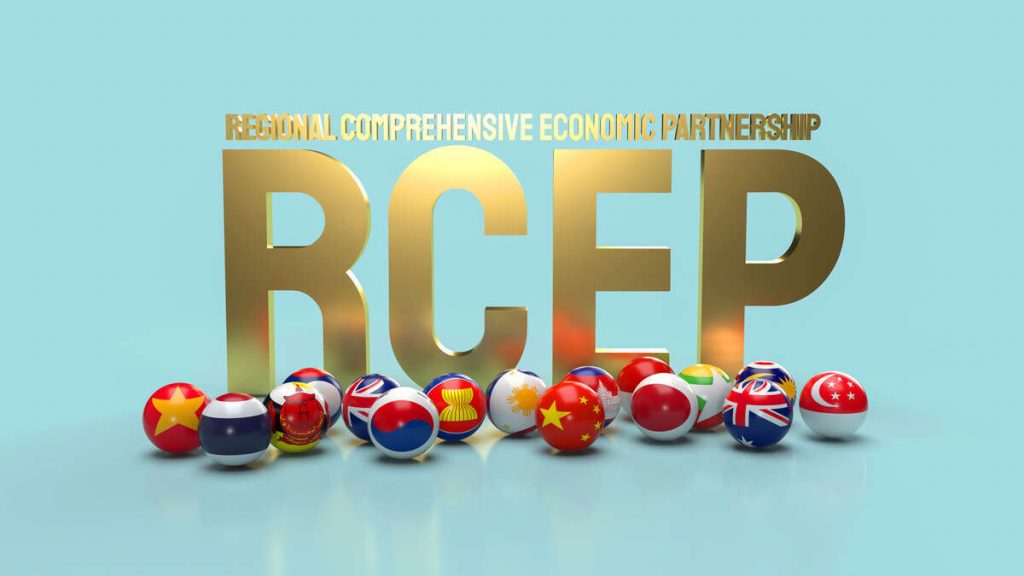Since its signing, the Regional Comprehensive Economic Partnership (RCEP) has contributed to restructuring the economy and attracted intra-regional investment to Vietnam.
- The elements of RCEP help Vietnam attract more intra-regional investment capital.
Creating favorable conditions for investment through RCEP includes business registration and approval, licenses, administrative requirements and procedures, as well as tax and social security-related procedures.
By joining RCEP, countries also commit to eliminating 97.8 – 98.3% of tariff lines for Vietnam. ASEAN countries also commit to reducing 85.9 – 100% of tariff lines.
The vitality of RCEP has partly affirmed its economic significance for Vietnam. The business sector is expected to benefit the most. Additionally, the tourism, education, entertainment, and retail sectors also benefit significantly.
Corresponding to the values received, Vietnam continues to improve its investment environment. This is reflected in the implementation of resolutions and directives on enhancing information supply and reducing administrative requirements.
The adjustments made in the Investment Law 2020, the Public-Private Partnership Investment Law, and Decree 31/2021/NĐ-CP contribute to making Vietnam an increasingly attractive investment destination.
According to the Chairman of the Thai Chamber of Commerce and Industry in Vietnam, businesses in Thailand are interested in the Vietnamese market, and they believe that they will pour more capital into Vietnam. Another example of investment from other countries into Vietnam is Samsung Group from South Korea. Last year, Samsung Vietnam exported products worth 65 billion USD, accounting for 8.9% of the export revenue.

- Some key points of Decree 31/2021/ND-CP guiding the implementation of the Investment Law are as follows:
Decree 31/2021/NĐ-CP has contributed to simplifying procedures for investors in implementing legal procedures. The decree outlines efforts to address bottlenecks in business operations, while also decentralizing power to local authorities and ensuring transparency, as well as providing additional incentives and special investment support. Specifically:
- Supplementing the list of restricted sectors for foreign investors accessing the market. In Annex I of Decree 31, there are two groups of sectors and fields:
- The first group includes 25 sectors and fields in which foreign investors are prohibited from participating in the market.
- The second group includes 58 sectors and fields that foreign investors can access the market.
Supplementing the favored investment sectors and industries.
Decree 31/2021/NĐ-CP also added several categories to the favored investment sectors and industries, including:
- Researching and producing biotechnology products for use as food.
- Manufacturing wood products; producing artificial boards, including plywood, laminated wood, and MDF boards.
- Developing, operating, managing technical infrastructure structures of industrial clusters.
- Supporting the prevention of violence against women based on gender at the community level for sex workers.
- Utilizing waste heat for electricity generation in production facilities to protect the environment.
Changing and integrating the list of investment projects in economically and socially difficult areas.
Decree 31 specifically lists the investment incentive areas in economically and socially difficult or particularly difficult areas as regulated in Appendix III attached to the decree.
Supplementing conditions for beneficiaries of investment incentives.
According to point c, Clause 4, Article 19 of Decree 31, projects employing disabled workers must have at least 30% of the average annual regular labor force in order to be eligible for incentives.
Small and medium-sized enterprises are entitled to incentives when they meet the following conditions:
- At least 80% of participating enterprises are classified as small and medium-sized enterprises.
- Have at least 10 distribution points for goods to consumers.
- At least 50% of the revenue generated by the chain is contributed by small and medium-sized enterprises.
According to Article 56 of Decree 31, the total project downtime must not exceed 12 months. In case the deadline is exceeded, the investment registration agency will terminate the project.
In case the project suspends operations according to a court judgment, arbitration award, or decision of the state investment management agency, the suspension duration will be determined based on the court judgment, arbitration award, or decision of the state investment management agency.
Supplemented cases of termination of investment projects.
Decree 31/2021/NĐ-CP adds the following cases of termination of activities:
- Investors operating investment activities based on simulated civil transactions under civil law.
- Termination of investment according to court judgments, arbitration awards.

About our company
HMLF is a Law Firm licensed to provide legal services to Enterprises. With over 70 years of experience in:
– Finance, Accounting, Tax.
– Industry: Manufacturing, Service, Aviation, Transport, Technology, Finance.
– Helping Customers control transactions from internal legal to international trade. Become the best legal defender for Businesses.
– Try to offer optimal solutions to bring customers satisfaction.
HMLF is always available to offer assistance in understanding the procedures with authorities.

Harley Miller Law Firm “HMLF”
Head office: 14th floor, HM Town building, 412 Nguyen Thi Minh Khai, Ward 05, District 3, Ho Chi Minh City.
Phone number: +84 937215585
Website: hmlf.vn Email: miller@hmlf.vn





